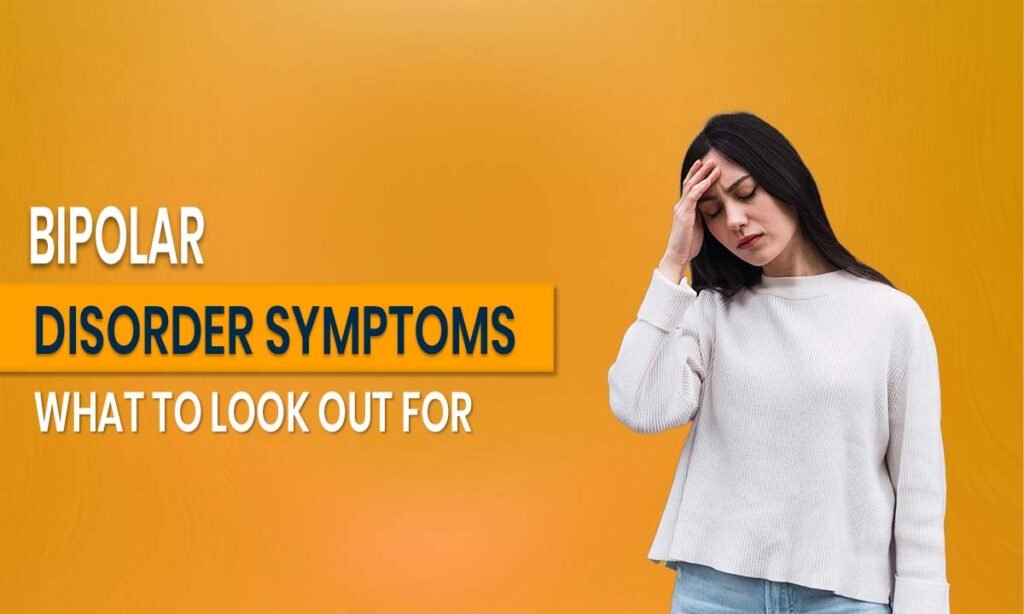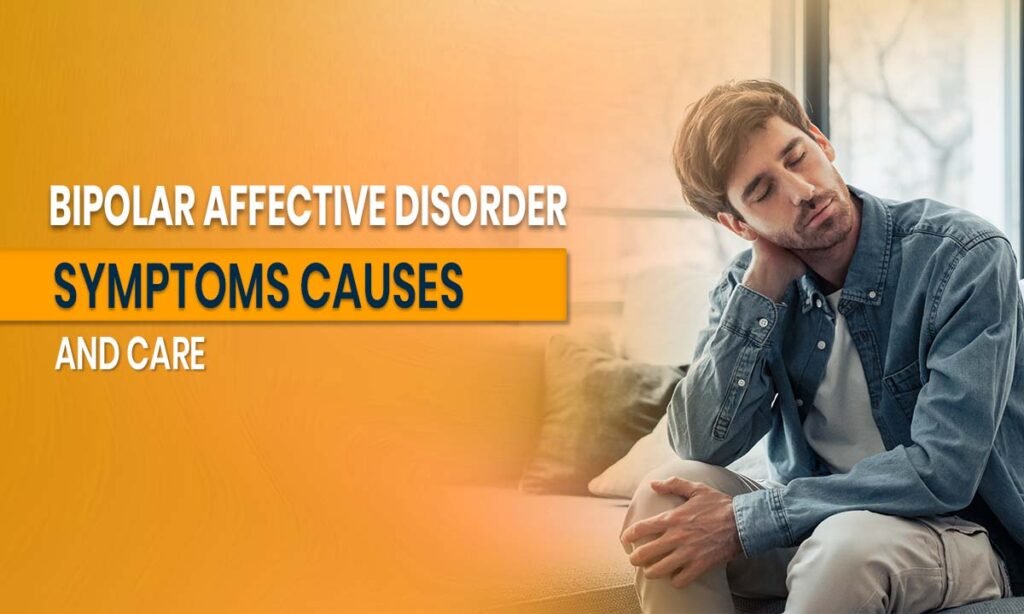
Chronic depression and bipolar disorder are both serious mental health conditions that can have a significant impact on a person’s well-being. While they may share some symptoms, they are distinct disorders, each requiring specific care and treatment.
This article aims to explain the key differences between chronic depression and bipolar disorder, including their symptoms, treatment options, and the importance of proper diagnosis. If you or someone you know is affected by these conditions, keep reading to understand how to better manage them.
What is Chronic Depression?
Chronic depression, clinically known as Persistent Depressive Disorder (PDD), is a long-term form of depression. Unlike temporary depression, which may resolve after a few weeks, chronic depression persists for months or even years, making it feel like an ongoing emotional burden. According to the ICD-10, chronic depression lasts for over two years, significantly affecting a person’s daily functioning.
Symptoms of Chronic Depression
People with chronic depression often experience a low mood that lingers over time. Some of the common symptoms include:
- Persistent feelings of sadness, hopelessness, or worthlessness
- Fatigue and low energy
- Trouble concentrating or making decisions
- Sleep disturbances, such as insomnia or oversleeping
- Changes in appetite or weight (either eating too little or too much)
Although people with chronic depression might have brief moments of feeling “okay,” these instances are usually short-lived, making the condition feel like a constant weight.
Treatment for Chronic Depression
Managing chronic depression typically involves a combination of therapies, medications, and lifestyle adjustments. The most common approaches include
- Cognitive Behavioral Therapy (CBT) to address negative thinking patterns
- Antidepressants to help balance brain chemicals and improve mood
- Lifestyle changes, including regular physical activity, balanced nutrition, and proper sleep
- Support groups to offer emotional support and reduce feelings of isolation
Is Chronic Depression a Chronic Disease?
Yes, chronic depression is considered a chronic mental illness. While it may persist for long periods, it is manageable with proper care. With the right treatment, individuals can live fulfilling lives despite the condition.
What is bipolar disorder?
Bipolar disorder, formerly known as manic-depressive illness, is a mood disorder characterized by extreme mood swings. Individuals with bipolar disorder experience emotional highs (mania) and lows (depression). These mood shifts can affect everything from sleep patterns to energy levels and decision-making.
Symptoms of Bipolar Disorder
Bipolar disorder presents a unique set of symptoms that include:
- Extreme mood swings, alternating between manic and depressive states
- Impulsivity during manic episodes, such as engaging in risky behaviors
- Feelings of hopelessness or sadness during depressive episodes
- Significant changes in sleep (either sleeping very little or excessively)
- Increased energy, racing thoughts, and rapid speech during manic episodes
Unlike chronic depression, which involves a constant low mood, bipolar disorder is defined by dramatic changes in mood, leading to periods of extreme highs and lows.
Treatment for Bipolar Disorder
Treating bipolar disorder requires a comprehensive plan that includes:
- Mood stabilizers like lithium to regulate mood swings
- Antipsychotic medications and antidepressants may be prescribed to help control both manic and depressive symptoms.
- Therapy such as psychoeducation to teach patients about their condition and help them manage symptoms
- Mood charting to track fluctuations and identify early warning signs of mood shifts
Key Differences Between Chronic Depression and Bipolar Disorder
1. Mood Patterns
- Chronic Depression: Consistently low mood with occasional fleeting moments of feeling “okay.”
- Bipolar Disorder: Alternates between extreme depression and manic highs, often with normal moods in between.
2. Energy Levels
- Chronic Depression: Low energy, fatigue, and lack of motivation are constant.
- Bipolar Disorder: Energy levels can fluctuate drastically, with high energy during manic episodes and low energy during depressive episodes.
3. Sleep Patterns
- Chronic Depression: Sleep disturbances such as insomnia or sleeping too much are common.
- Bipolar Disorder: During manic episodes, people may feel a reduced need for sleep, while during depressive phases, they may sleep excessively.
4. Thought Patterns
- Chronic Depression: Persistent negative thoughts, feelings of worthlessness, and hopelessness.
- Bipolar Disorder: During manic phases, individuals may experience racing thoughts, grandiosity, and impulsive decisions. During depressive phases, thoughts become more negative and hopeless.
5. Duration of Symptoms
- Chronic Depression: Symptoms persist for years with occasional brief periods of feeling “okay.”
- Bipolar Disorder: Episodes of manic or depressive moods last for days, weeks, or months, with periods of normal mood between them.
Why Is Understanding the Difference Important?
Correctly identifying whether you have chronic depression or bipolar disorder is crucial for proper treatment. For example, treating bipolar disorder with antidepressants alone can trigger manic episodes, leading to dangerous consequences. A proper diagnosis ensures you receive the most effective treatment, minimizing risks and improving outcomes.
Treatment Approaches for Chronic Depression and Bipolar Disorder
Treatment for Chronic Depression
- Medications: SSRIs (Selective Serotonin Reuptake Inhibitors) and other antidepressants
- Therapy: Cognitive Behavioral Therapy (CBT) and psychotherapy to address thought patterns
- Lifestyle Changes: Exercise, a healthy diet, and proper sleep hygiene are key in managing symptoms.
Treatment for Bipolar Disorder
- Medications: Lithium, antipsychotics, and anticonvulsants to stabilize mood
- Therapy: Cognitive Behavioral Therapy (CBT) and psychoeducation to understand mood changes and triggers
- Mood Charting: Keeping track of mood fluctuations to better manage symptoms
Can Bipolar Disorder Be Cured?
Bipolar disorder is not curable, but it is manageable with the right treatment. The goal of treatment is to stabilize mood swings, prevent extreme highs and lows, and help individuals live a productive and fulfilling life. With proper care, people with bipolar disorder can live a successful and stable life.
How Athena Luxus Can Help
At Athena Luxus, we understand how challenging it can be to live with chronic depression and bipolar disorder. Our luxury mental health services are designed to offer high-quality care to those dealing with mood disorders. We create personalized treatment plans that include therapy, counseling, and medication management to ensure a holistic approach to recovery.
Our experienced professionals work closely with you to help you regain control of your life. Whether you are coping with chronic depression, bipolar disorder, or other mood disorders, we are here to support you on your path to healing.
Should you or someone close to you be dealing with these issues, we provide customized treatment strategies aimed at overcoming them. Our specialized services focus on:
Alcohol Detox Treatment
Cocaine Addiction Treatment
Drug Addiction Treatment
Heroin Addiction Treatment
Conclusion
If you’re suffering from chronic depression or bipolar disorder, don’t wait for things to get worse. Athena Luxus provides premium mental health care to help you regain emotional balance and live your best life. Contact us today to schedule an appointment and take the first step toward your recovery.
For more information or to book an appointment, call +91 9718921212.
Patient Experiences
- Karan Gupta: I struggled with chronic depression for years before coming to Athena Luxus. They treated my symptoms and gave me hope for the future.
- Sana Patel: After being diagnosed with bipolar disorder, I felt lost. Athena Luxus helped me balance my moods and regain control of my life.
- Vikas Sharma: Athena Luxus gave me the tools to manage my condition. It was life-changing.”
- Priya Mehta: “The services at Athena Luxus helped me cope with both chronic depression and bipolar disorder. Their approach was caring and professional.
Read our Blogs
What is Borderline Personality Disorder?
How Meditation and Yoga Improve Mental Health
What is Anger Management and Why is it Important?
Relationship Between Mental Health and Sexual Abuse
Frequently Asked Questions (FAQs)
How Is Chronic Depression Treated?
Chronic depression is treated with therapy, antidepressants, and lifestyle changes. Cognitive Behavioral Therapy (CBT) is a key part of treatment.
Is Depression a Chronic Disease?
Yes, chronic depression is considered a long-term mental illness. However, with the right treatment, it can be managed.
How Can I Overcome Chronic Depression?
Overcoming chronic depression involves therapy, medications, and regular support. Exercise, healthy eating, and good sleep hygiene are also important.
What Causes Bipolar Disorder?
The cause of bipolar disorder is unknown, but genetics, brain structure, and environmental factors may play a role.
Is Bipolar Disorder Curable?
Bipolar disorder cannot be cured, but it can be effectively managed with the right combination of medication, therapy, and lifestyle adjustments.

